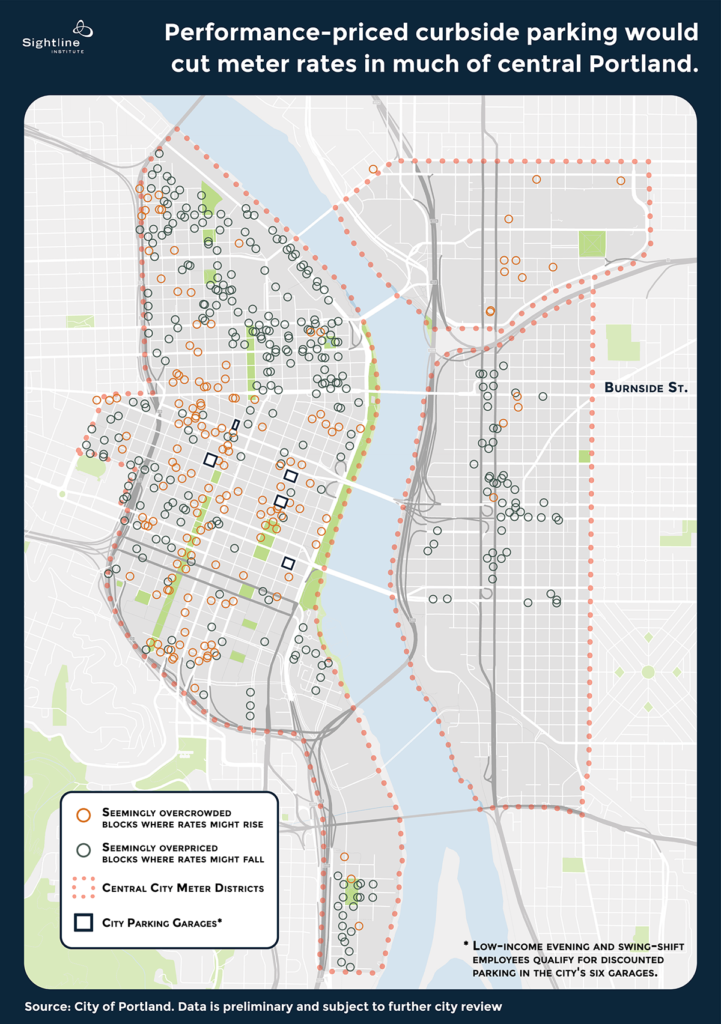We’re going to call it: No city in the Northwest, and few cities in North America, are doing parking policy better than Portland.
With a unanimous vote last week, its city council dropped two crucial pieces into place. First, they agreed to adjust parking-meter prices up or down each year based on the number of people using them, aiming for an average occupancy rate between 65 and 85 percent—one to three open spaces on each block.

Second, Portland enshrined a longtime practice into official policy: at least half the net revenue from new meter districts will be earmarked for reinvestment in that district. Specifically, the money will go to public transit discounts, sidewalk improvements, bike infrastructure and other ways to reduce the need to drive in that district.
Portland is the first Cascadian city with a parking policy rule like this. A similar idea was considered by Seattle officials, but a proposed pilot seems to be on ice for the moment.
These are two of the three signature policies behind the modern parking reform movement. The third—ending mandatory auto parking in new buildings—already applies to all Portland residential buildings within 500 feet of a good transit line.
Taken together, these policies build cities that will no longer hide the costs of driving inside the price of every apartment, every latte, every carton of raspberries. They build cities that lock up less wealth in usually-empty parking spaces, and they open the door to entrepreneurs who find creative ways to make car ownership increasingly optional.
That’s why we’ve been pushing all of them for the last 10 years, working whenever possible to support local advocates like Portlanders for Parking Reform and its ally groups, who were essential to this sheaf of victories.
Portland’s work continues, of course. New meter districts in commercial nodes will work better if the city has created overnight residential permit districts that prevent shoppers from parking just outside the metered area. And though permits are the only effective solution to curbside parking shortages, this is a difficult fact to get most people to accept. Earning residents’ support for permit districts is going to take a lot of careful political work.
The great thing about parking policy reform is that every improvement points the way to the next. The maddening thing about parking reform is that every improvement points the way to the next.


Comments are closed.